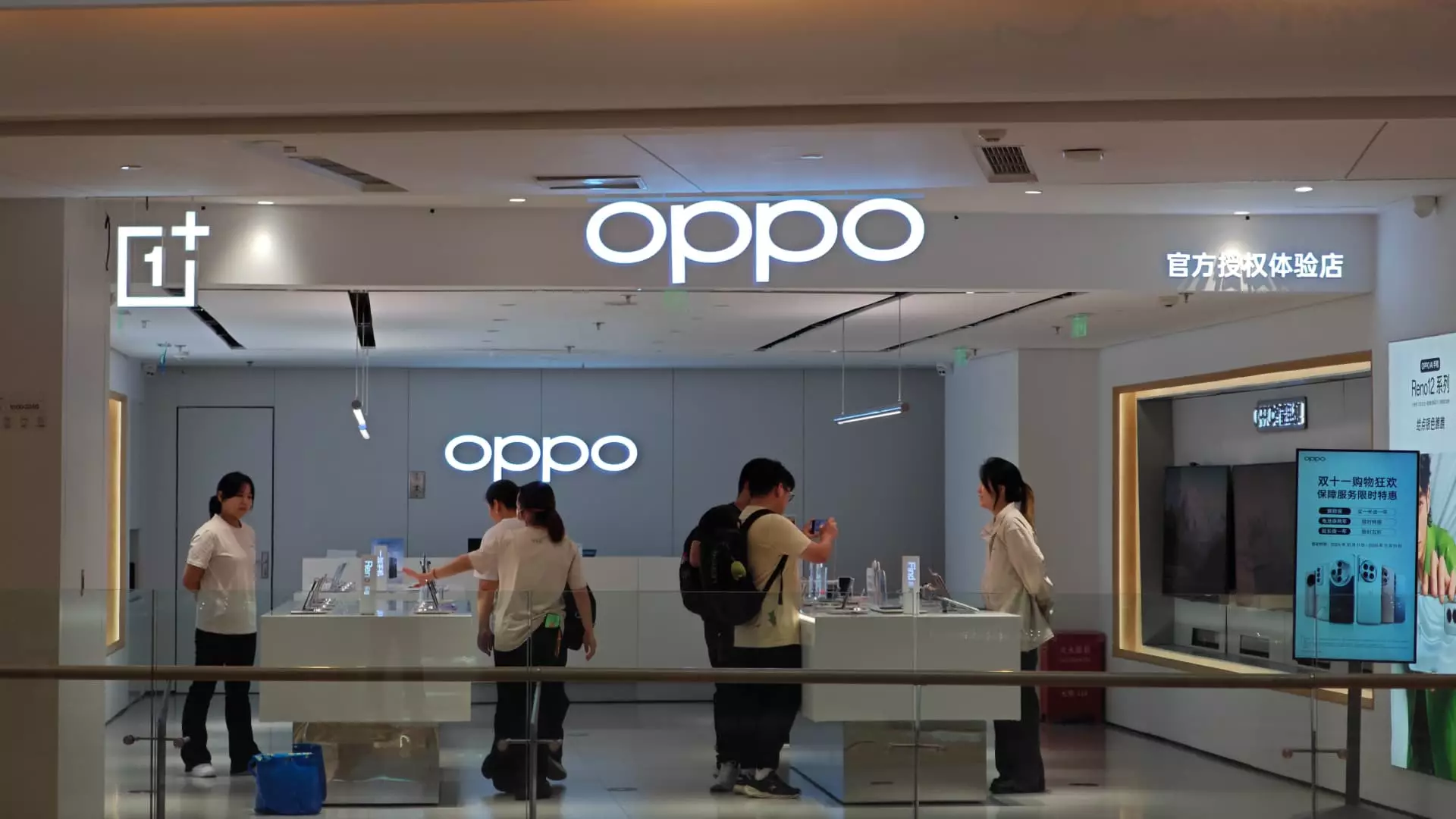In an era dominated by rapid technological advancements, Chinese smartphone manufacturer Oppo is making significant strides by heavily investing in artificial intelligence (AI). With weekly discussions involving leadership from tech giants like Google and Microsoft, Oppo aims to refine its products to better meet consumer needs. This burgeoning focus on AI comes at a critical moment as the competition among major tech companies intensifies, particularly in the realm of generative AI, which allows machines to produce human-like responses and creations.
At the core of Oppo’s strategy is addressing consumer pain points through innovative AI solutions. As per Billy Zhang, the company’s president for overseas sales and services, cooperative initiatives with Google will seek to pinpoint specific needs or obstacles faced by users, thereby ensuring that technological developments are attuned to real-world applications. By utilizing AI to enhance user experiences, Oppo hopes not only to strengthen its market position but also to foster greater customer loyalty.
Oppo’s expansion plans, especially in Europe while keeping its distance from the U.S. market for now, signify a strategic focus on regions where demand for advanced mobile technology is growing. About 60% of its shipments already come from international markets, including Southeast Asia and Europe, which may offer more immediate opportunities than the restrictive U.S. landscape.
Oppo’s upcoming flagship smartphone, the Find X8 series, is generating excitement, especially with the integration of advanced AI capabilities sourced from both Google’s Gemini and Microsoft’s technology stack, which includes elements from OpenAI like ChatGPT. This collaboration emphasizes the role of generative AI in modern devices, with functionalities such as writing assistance and voice transcription expected to engage users on a completely new level. Such innovations position Oppo to better compete in a saturated smartphone market where distinct features can make or break a product’s success.
Market analysts suggest that while the U.S. may have a technological edge in AI development, Chinese firms like Oppo could excel in applying these technologies in consumer-facing products. This dichotomy presents a fascinating interplay between hardware producers and software developers, as companies work collaboratively to explore the expansive potential of AI technology.
Beyond consumer devices, Oppo is also exploring the incorporation of AI in its manufacturing lines. The company has begun automating parts of its assembly process, replacing approximately 8% of human workers with machines. This strategic move is indicative of broader trends in the tech industry where increased efficiency and reduced production costs are paramount. By upskilling employees to engage in more complex manufacturing roles, Oppo not only enhances its operational efficacy but also prepares its workforce for the future demands of a digitalized manufacturing ecosystem.
The company has reported a remarkable 40% decrease in manufacturing costs over the past three years, resulting largely from improved integration between technology systems and factory machinery. This streamlined approach has slashed production time from 16 to just six days, granting Oppo the agility to fulfill market demands more rapidly, a significant advantage in a fast-paced industry where consumer preferences can shift on a dime.
The bullish outlook for generative AI adoption in smartphones is corroborated by research projections predicting shipments to rise dramatically—from a mere 46 million in recent years to a staggering 732 million by 2028. This rapidly burgeoning market presents an enticing opportunity for companies like Oppo, which are not only experimenting with AI but are also committed to incorporating it within their product offerings.
In tandem with Oppo’s efforts, competitors are launching their own AI enhancements. For instance, Apple has announced upcoming software updates that will introduce its own AI features, including the ability to edit photos by removing unwanted elements. This indicates a trend where advancements in AI are pivotal to the competitive strategies of smartphone makers, underscoring the urgency for companies to innovate or risk obsolescence.
Oppo’s strategic investment in AI reaffirms its commitment to leveraging cutting-edge technology to enhance the user experience and bolster its market position. As the company prepares to launch its flagship devices integrated with AI functionalities, it not only aims to satisfy evolving consumer needs but also seeks to redefine the smartphone landscape. With an optimistic outlook on AI’s future impact across industries, Oppo stands at the forefront of a technological revolution that promises to transform not only smartphones but the entire digital experience. It remains to be seen how these innovations will shape consumer behavior and industry standards in the coming years, but one thing is certain: the integration of AI into mobile technology is just beginning.

